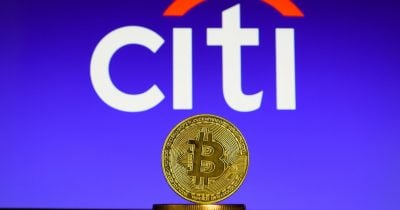Jodi-Ann Burey was only two weeks into her new role as an inclusion marketing manager for an outdoor retail company when she was accused of having a “race agenda.”
Burey, who is Black, was no stranger to workplace hypocrisy; as she sees it, the office is a petri dish where the knotty dynamics of society are concentrated. At the time of the accusation in February 2020, however, all she could do was laugh. “I was like, you knew who I was before you poached me. This is exactly what you wanted me to do,” she says over Zoom. A precursor to the racial reckoning that would follow the murder of George Floyd, the moment bore an important truth for Burey: Companies will feign interest in racial equity or gender parity but fail to deliver on those promises. “It’s so weird the ways that people will contort themselves to make you a willing participant in their lie.”
Today, race can feel like a liability in the job market more than it has in decades, as equity goals are being rolled back and the Trump administration has refashioned DEI into a dog whistle targeting Black people, trans people, and other minorities. In January, President Trump issued executive orders to scrub DEI from federal agencies and root out “illegal DEI” in the private sector. He has since worked to weaken antidiscrimination laws, and business leaders across the industry have swiftly complied. Combined with DOGE’s impact on federal agencies, consequences have been seismic. In August, according to the US Department of Labor, Black unemployment surged the highest it’s been since the pandemic in 2021.
Hiring has also slowed amid economic uncertainty, as people have expressed their frustrations on social media over a grueling job hunt. And as Gen Z faces greater hurdles to employment—the job market for “prime-age” laborers may be on a downward slope, the Economic Policy Institute noted—young people are being forced to reconsider their relationship to work altogether.
Burey’s new book, Authentic: The Myth of Bringing Your Full Self to Work, is primed for a moment where people want to better understand how the workplace operates as they search for a place in it.
What Burey offers is a sobering look at the way companies take advantage of their workers, and how to reclaim what they lost. Through a mix of personal narrative and reporting, Burey cycles through accounts of burnout, corporate mismanagement, dwindling protections, and stagnant pay as evidence of the toll authenticity takes. “Authenticity costs, and I mean cash. Just existing as women means we are paid eighty cents for every dollar paid to a white man for the same role,” she writes. “We don’t need better ways to negotiate. We need a better system.”
With a career spanning nonprofits, education, and tech startups—companies only referred to in code in the book as “The Org,” “The Shop,” etc.—Burey maps the wreckage of 2020 when corporations rushed to performatively invest in DEI, but doesn’t stop there. She uses it as a springboard to widen the conversation about what is needed: “Can we imagine care rather than control?”
A book about the consequences of what it really means to be who you are in the office, hers is a story, in part, of how the American workplace failed—and continues to fail—its workers, and why a healthy work culture may be all but impossible.
This interview has been edited for clarity and length.
WIRED: You frame “authenticity” in the workplace as neither a lie nor a trap, but a myth—why?
Jodi-Ann Burey: The thing is, we want to be authentic. That’s why the call for authenticity is so seductive. Who wouldn’t want that? And so there’s this sense that we have to believe it so we can get more space for ourselves and for our people. So you can create change. That’s how we’ve been socialized—to believe that our own personhood is strong enough to change institutions. But on an individual basis, it’s not enough. Representation is not enough.
It’s not.
Oftentimes, I feel like we martyr ourselves, especially if we’re doing it alone, thinking that we’re struggling so someone else doesn’t have to struggle. In some cases that might be true. Two of my oldest nieces are in the workforce now. I cannot promise that their experiences at work will be all that different from mine.
Generationally, the relationship young people have to work does seem to be shifting.
Yes, but our identity as human beings becomes intertwined with our function in capitalism. And so when you start thinking about who you are through institutional narratives, it can be really challenging to find yourself in that relationship.
You suggest that authenticity works against people of color in the larger corporate structure, writing, “What makes us authentic makes us different. What makes us different makes us institutionally antagonistic.”
I want to emphasize that it’s not just corporate spaces. I think it’s easy to make what I call the “widget making” industry as being particularly hostile. But I actually spent most of my career in nonprofits. And so I think we can find that hostility in any workplace, because the workplace just concentrates the dynamics of our larger society. In some instances, the workplace can be protective, right? But protective workspaces are few and far between and, if anything, inconsistent. We see what’s happening right now. As soon as there aren’t any political incentives to be more inclusive and more equitable, these institutions will fold with glee.
DEI has been a target of the Trump administration from day one. But there are people who also believe DEI actually wasn’t all that effective to begin with.
I think there are ways that DEI is designed to not function, right? It’s the job of an institution to resist change. All systems enjoy homeostasis, so when you have women of color, you have Black women, you have folks with small kids, you have disabled folks, queer folks, when you have these people occupying space and taking ownership of that space that they have within the workplace, that requires the systems of work to be different.
But more often than not, it refuses to.
These systems did not imagine us as paid workers, much less paid equitably. So when you bring that self into the workplace, things have to change. We need maternity leave, we need comprehensive health care, we need flex-work policies. I deal with intermittent chronic pain flares, and telling me that I can preselect two days a week to work from home is not how chronic pain flares work.
We are in the aftermath of the 2020 DEI reckoning right now. More and more, companies are mandating return-to-fffice policies in lieu of the remote worker. Silicon Valley, which is in its hard tech era, is adopting a 996 work culture. Has the culture of work—and our relationship to it—gotten better or worse in your opinion?
We’re dealing with targeted attacks on workers just for reposting something about Palestine. We’re in an era of intensive McCarthyism where any type of visibility and speech—speech as in actual speech, speech as in digital speech, but even the speech that we do with our own bodies, by my mere presentation as a Black person—makes me a target. So, no, the workplace did not get better. We need to release ourselves from this idea that if people know better, they will do better. A lot of people who said they didn’t know anything in 2020, they know now. So if people know better now, why are they not doing better to help push back against this federal bullying of how we marginalized folks in the workplace? I don’t know what the prospects are for a Black woman who has opinions in 2025. I don’t know if I can eat off of that. Can I live somewhere with that? I don’t know. That unknowing feels so different than it did in 2020.
Gen Z has a different attitude toward work entirely. Are they abandoning work norms because they think the game is rigged?
Look, many of them entered the workforce during the pandemic just as millennials did during the height of the great recession in 2008. There’s this breaking that happened for me that I think has also happened for them. And now they are rewriting their own definitions of what success means, what status means, and what role does that have in my life. I just don’t see that hustle driving them in that same way, which I love. And then at the same time, I think about my two nieces. The labor force is so inhospitable to Black women. And so even as an aunt, I struggle on how to even advise them. Do I tell them, listen, you have to hustle harder? I don’t know.
Will it ever be a positive to be authentic in the workplace?
I don’t know if that’s up to us. I think we’re always being authentic. How other people of color navigate the workplace is often based on how they choose to survive the demands and pressures of capitalism. There is no binary—“This is authentic. This is not authentic.” This is my biggest pushback to code switching.
What do you mean by that?
We’re all making different decisions in different parts of our lives to express ourselves within these really oppressive systems and navigate occupational violence. Whatever choice someone makes is the choice that they thought was best for them. One thing I promised myself very early in my career is that if another Black woman thinks that denigrating me is critical for her own survival, I can’t get mad at her for that. There are a lot of rewards for that. I’m not mad at her. I’m mad at the system. That’s not how I would go about it, but that’s how she thought she needed to survive. She is simply responding to the punishments and rewards of the system in the same way that I am.




